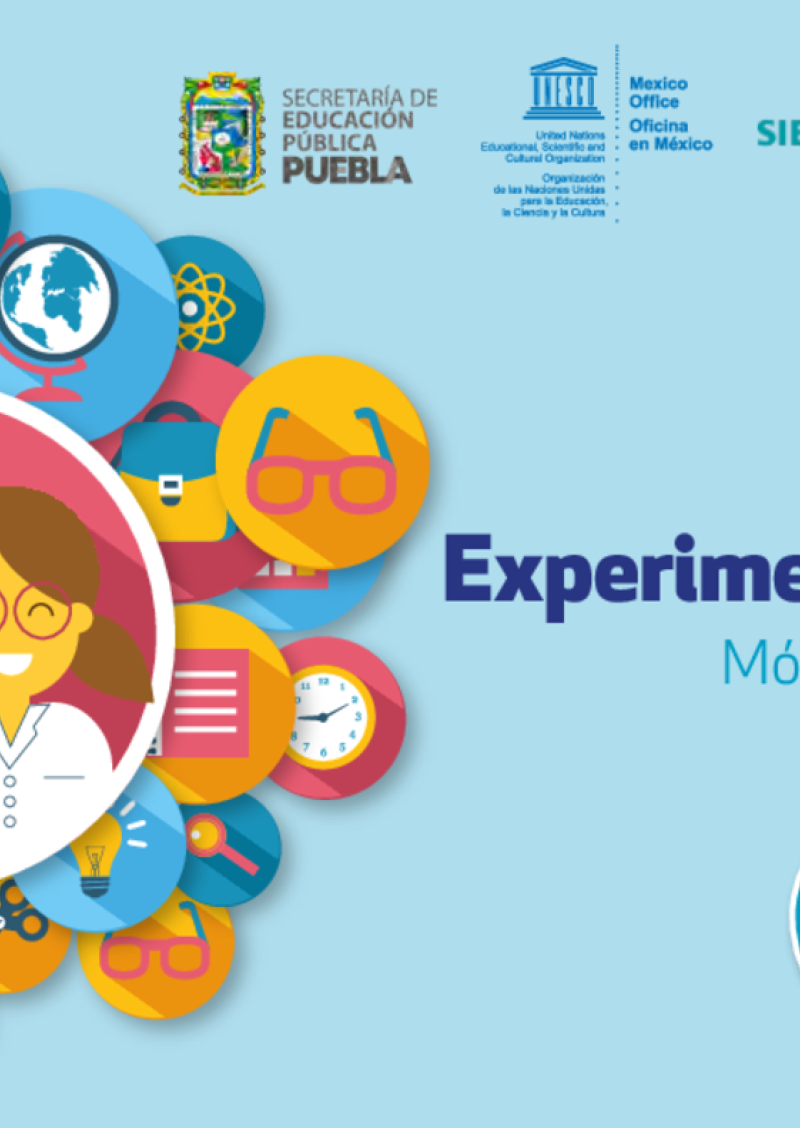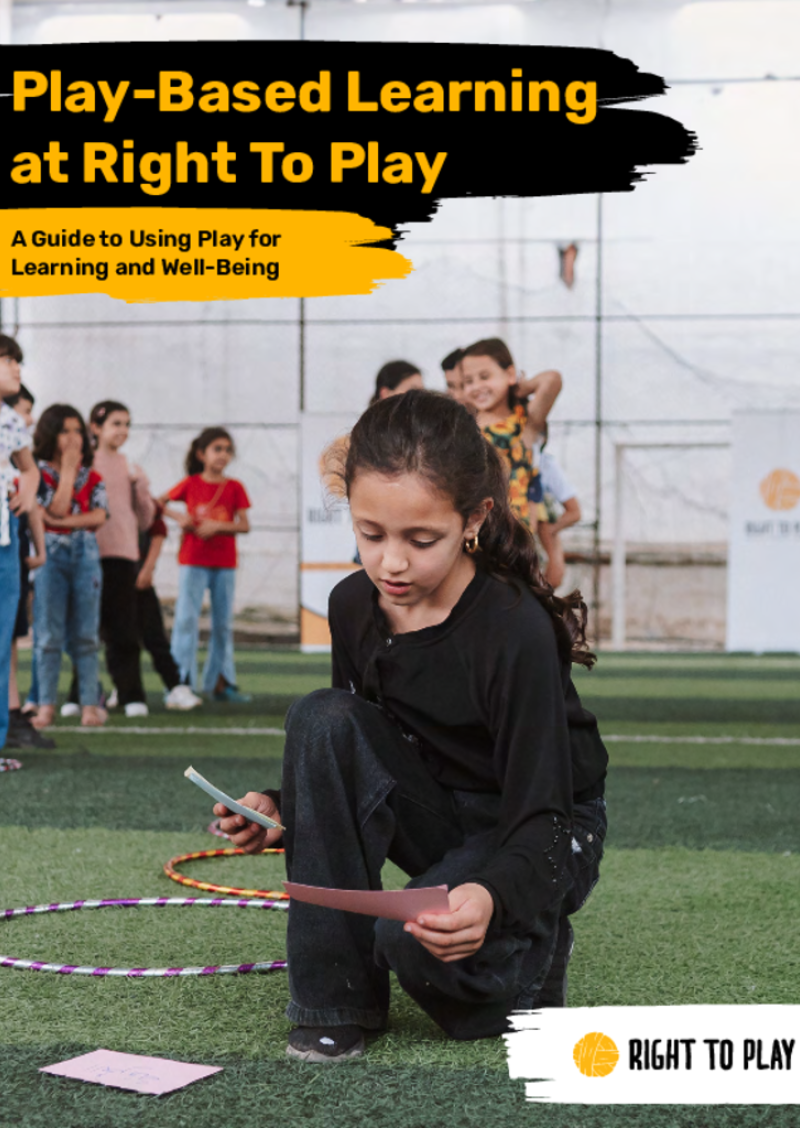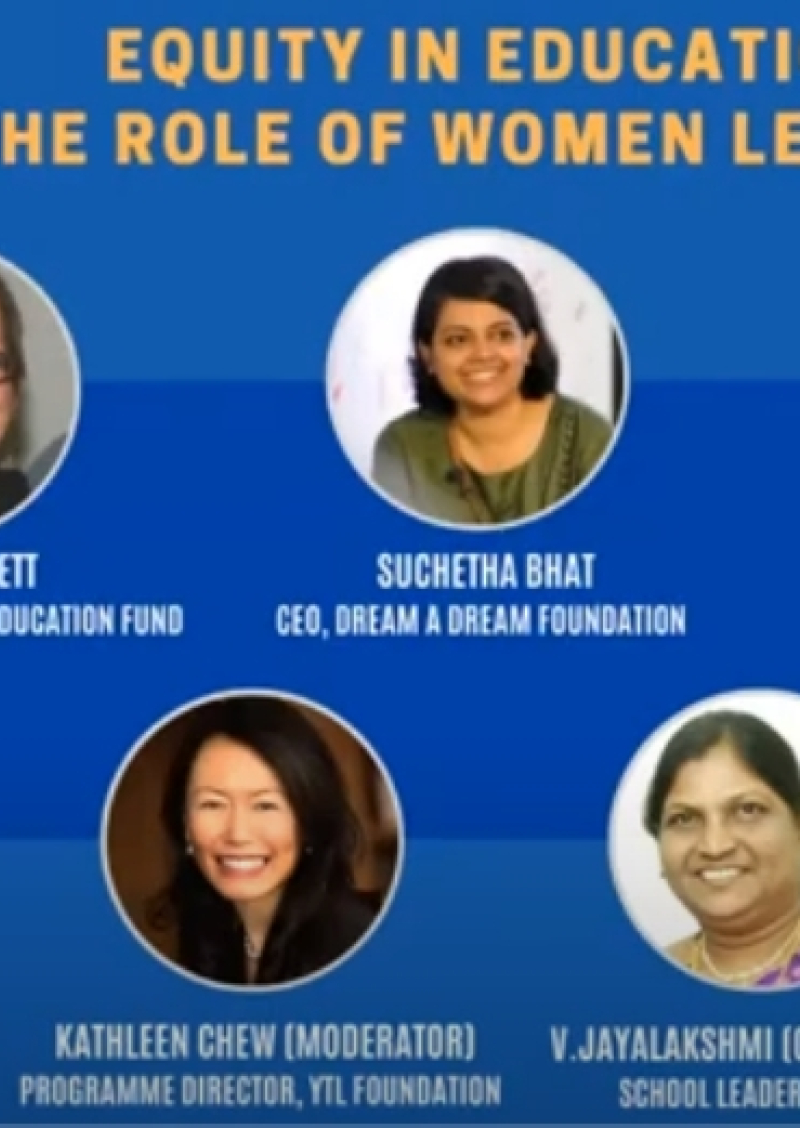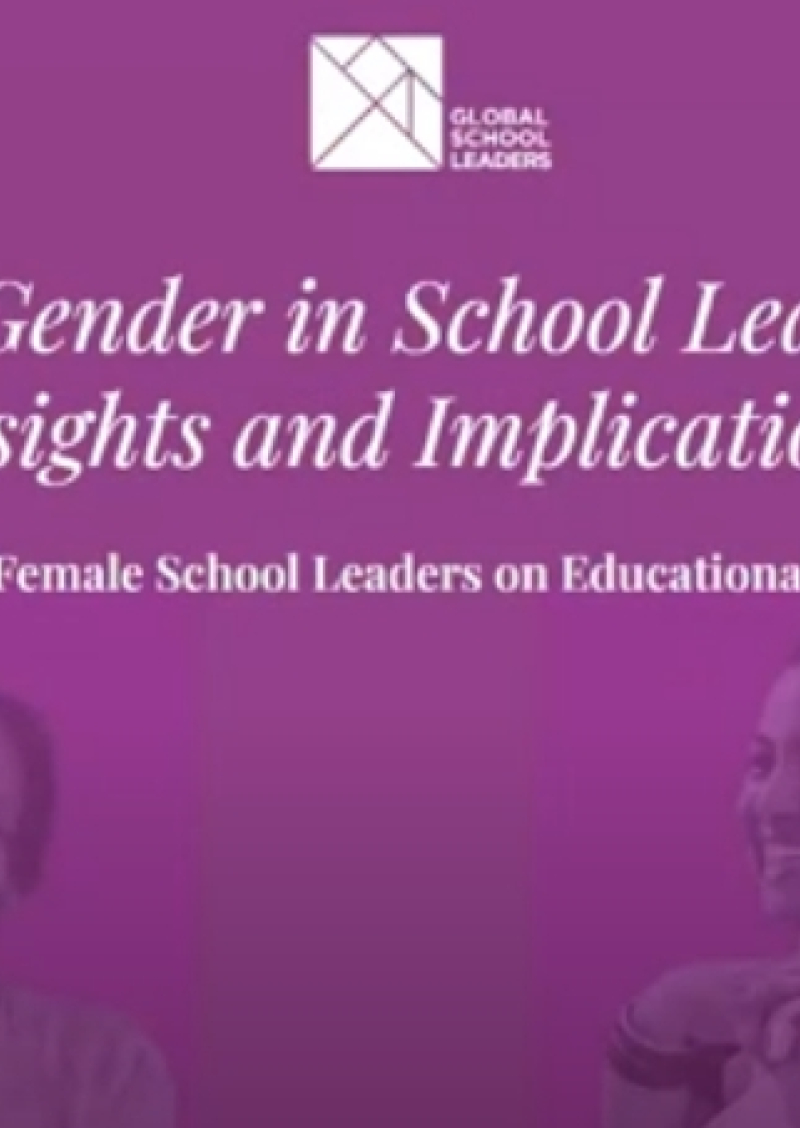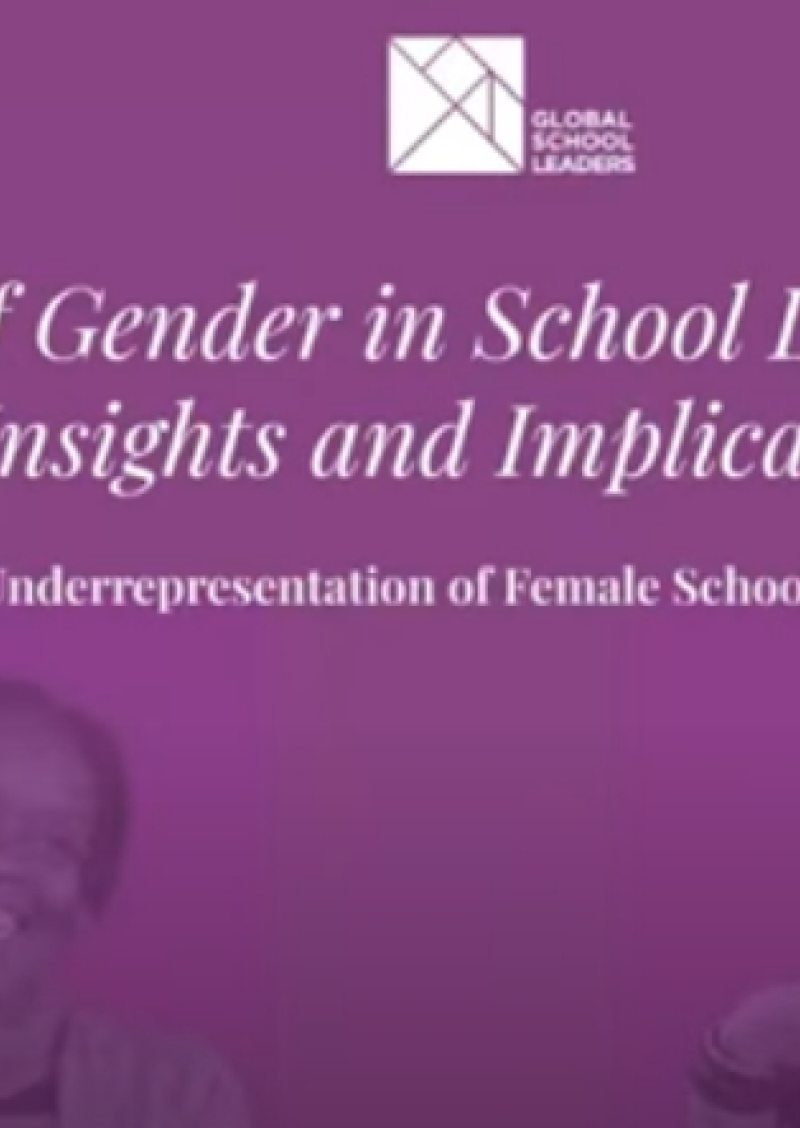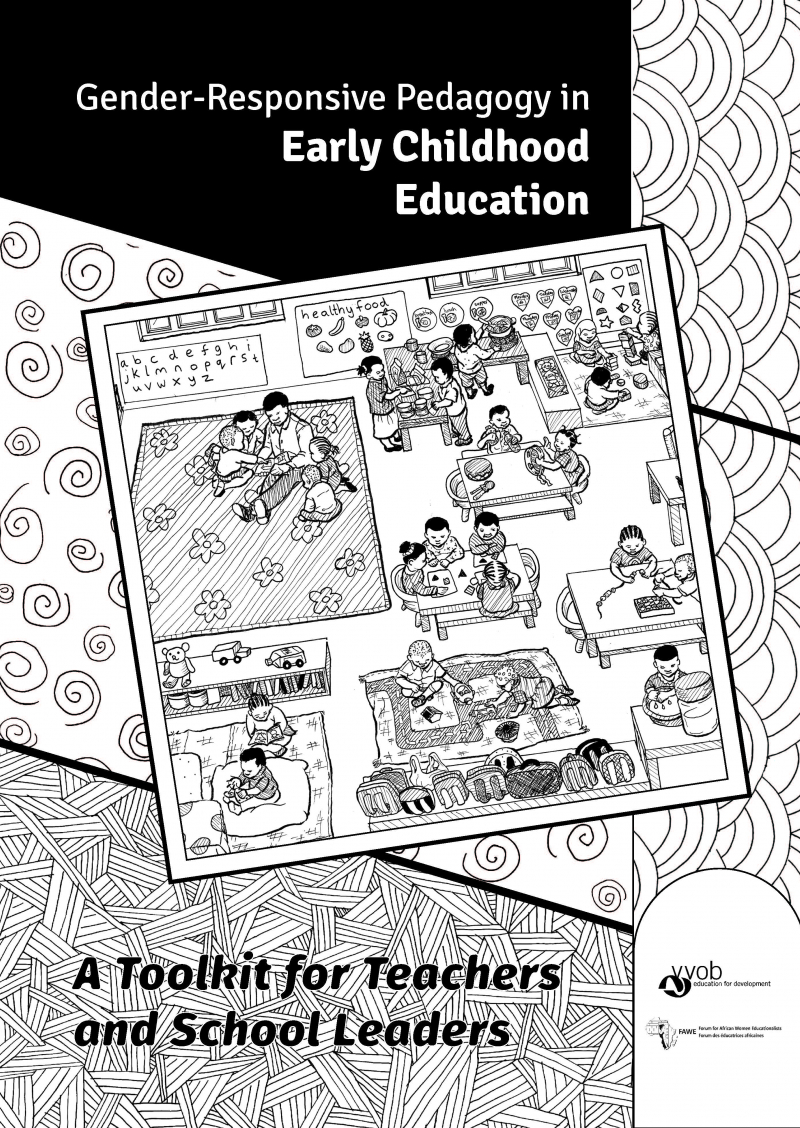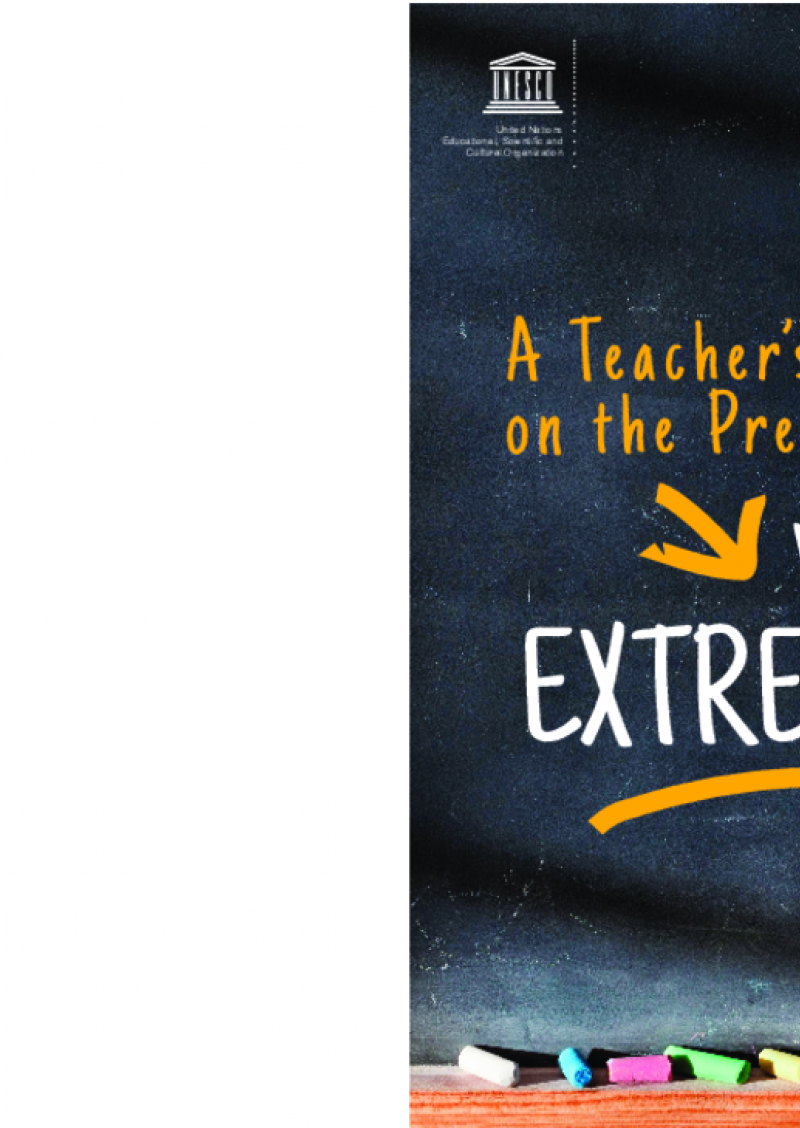Teacher Resource Centre
Displaying 1 - 20 of 24
STEAM +género - Una propuesta para fortalecer la educación inicial con equidad
Esta guía, creada en colaboración entre el Ministerio de Educación de Colombia y la Fundación Siemens Stiftung, con apoyo de la OEA, busca integrar el enfoque STEAM con perspectiva de género en la práctica docente. Centrada en los sistemas educativos de Colombia y Chile, promueve la equidad de género desde la primera infancia, fomentando la participación de niñas y niños en ciencia y tecnología. A través de experiencias educativas y políticas, se pretende reducir estereotipos de género y promover una educación inclusiva y de calidad.
Experimento 3+ módulo: Salud - Guía de trabajo para docentes de preescolar
Esta guía, elaborada en el marco de un proyecto con la Oficina de la UNESCO en México para desarrollar la enseñanza de la ciencia a nivel preescolar, propone actividades y experiencias científicas para realizar en el aula. Incluye medidas de seguridad que se deben observar y demás instrucciones necesarias. Este módulo se centra en la temática de la salud (conocimiento del cuerpo humano, etc...).
Experimento 3+ módulo: Medio Ambiente - Guía de trabajo para docentes de preescolar
Esta guía, elaborada en el marco de un proyecto con la Oficina de la UNESCO en México para desarrollar la enseñanza de la ciencia a nivel preescolar, propone actividades y experiencias científicas para realizar en el aula. Incluye medidas de seguridad que se deben observar y demás instrucciones necesarias. Este módulo se centra en la temática del medio ambiente (ciclo del agua, contaminación, etc.…).
Experimento 3+ módulo: Energía - Guía de trabajo para docentes de preescolar
Esta guía, elaborada en el marco de un proyecto con la Oficina de la UNESCO en México para desarrollar la enseñanza de la ciencia a nivel preescolar, propone actividades y experiencias científicas para realizar en el aula. Incluye medidas de seguridad que se deben observar y demás instrucciones necesarias. Este módulo se centra en la temática de la energía (producción de energía, objetos conductores etc.…).
A Guide to Using Play for Learning and Well-Being
Right To Play uses a variety of approaches to play to support children’s learning, development, and well-being, including sports, music, theatre, art, and play-based learning.
This document focuses on the play-based learning methodology and approach, and how it can be used for learning and development goals related to Right To Play’s core programmatic areas: early childhood care and education, primary education, gender equality and girls’ well-being, and psycho-social support.
Faire des manuels scolaires des outils de l'égalité entre les femmes et les hommes
Ce guide invite les enseignants à réfléchir aux inégalités de genre dans les manuels scolaires. Elle présente des bases légales et normatives sur lesquelles s’appuient cette question dans le cadre Français, des chronologies, infographies sur l’égalité de genre et l’élaboration des programmes. On y retrouve différents outils à destination des enseignants pour les accompagner au moment d’aborder ces sujets en classe dans différentes matières, ou plus largement dans la vie scolaire.
Equity in Education: The Role of Women Leaders
Global School Leadership Webinar featuring Kathy Bartlett, Suchetha Bhat, Olanrewaju Oniyitan, Kathleen Chew, and V. Jayalakshmi on the topic of Equity in Education: The Role of Women Leaders.
Role of Gender in School Leadership PART II: Impact of Female School Leaders on Educational Outcomes
Drawing from the 2024 Evidence Review on gender in school leadership (available here), the two-part webinar series “Role of Gender in School Leadership" aims to offer deep insights into effective strategies for fostering gender equity in educational leadership. Watch this webinar as practitioners, researchers and policymakers from the global education space unpack the potential of improving female representation in school leadership to enhance educational outcomes and foster inclusive learning environments. In this webinar Aashti Zaidi Hai talks to Eline Versluys, Sister Zeph, Franco Mosso, and Veronica Cabezas.
Role of Gender in School Leadership PART I : Underrepresentation of Female School Leaders- PART I
Drawing from the 2024 Evidence Review on gender in school leadership (available here), the two-part webinar series “Role of Gender in School Leadership" aims to offer deep insights into effective strategies for fostering gender equity in educational leadership. Watch this webinar with professionals, researchers, and policymakers to deep dive into the underrepresentation of female school leaders and explore actionable strategies for overcoming systemic barriers hindering gender equity in school leadership roles, and discuss ways to dismantle them. In this webinar Sonakshi Sharma talks with Vongai Nyahunzvi, Gala Díaz Langou y Michael Boakye-Yiadom.
Teaching to prevent atrocity crimes: a guide for teachers in Africa
This is UNESCO's first resource with a regional focus on teaching to prevent atrocity crimes. It was developed with the United Nations and in partnership with the UNESCO International Institute for Capacity Building in Africa (IICBA). The guide was informed by exchanges with African stakeholders and advisors and tested through a piloting exercise with African teachers and students. It provides principles for teachers to consider in facilitating learning and constructive discussions with their students.
Gender-responsive pedagogy in early childhood education. A toolkit for teachers and school leaders
The toolkit offers an introduction to gender-responsive pedagogy in early childhood education and serves as a practical guide that can be adapted to any context and the related needs. It provides teachers at early education practical tips to ensure they are able to offer children a learning environment that is free of prejudice and stereotypes. It is a source of ideas that individual teachers and school leaders can put to immediate use in their classrooms and schools. The toolkit was pre-trialled in three countries: Rwanda, South Africa and Zambia, and it can be contextualised for implementation in different African countries.
Transformative pedagogy: a teachers’ guide for peace and resilience building in North Africa
This guide is designed to build the capacity of teachers so that they are informed and empowered in why and how to educate for peace-building. It offers an analysis of conflict, examines the role of ethics, expands on the elements of transformative pedagogy. It also provides practical tools to support learners’ active participation in shaping the world around them and assess learners’ understanding of peacebuilding concepts and skills, all while engaging the community.
Youth empowerment for peace and resilience building and prevention of violent extremism in Sahel and surrounding countries: a guide for teachers
This guide is designed to build the capacity of secondary school teachers and teacher educators to integrate a peace and resilience building approach in education for the prevention of violent extremism. It builds on the Transformative Pedagogy for Peace-building guide and it was contextualized to the context the Sahel and surrounding countries.
The guide redefines the role of teachers, inviting them to make a paradigm shift in adopting a transformative pedagogy that allows learners to actively participate in their own learning. Transformative pedagogy builds on active pedagogy and the competencies-based approach. The guide concludes with engaging learning activities to support experiential learning.
Transformative pedagogy for peace-building
This guide is designed to build the capacity of teachers so that they are informed and empowered in why and how to educate for peace-building. It offers an analysis of conflict, examines the role of ethics, expands on the elements of transformative pedagogy and provides practical tools to assess learners’ understanding of peacebuilding concepts and skills. It concludes with 20 engaging activities to support experiential learning.
The guide was developed as part of the "Teacher Training and Development for Peace-building in the Horn of Africa and Surrounding Countries project", which has as a long-term goal to develop a critical mass of teachers able to implement effective teaching and learning essential for preparing peace-loving and productive youth in Eritrea, Ethiopia, Kenya, Somalia, South Sudan and Uganda.
Empowering students for just societies: a handbook for secondary school teachers
The aim of this guide is to provide teachers with a selection of relevant and accessible in-classroom and out-of-classroom educational resources (summaries of short activities, lessons, units) that aim to instil the principles of the rule of law among secondary school students.
It can also be used by professionals working in non-formal education or engaging with young people, for example, in sports associations, community organizations, social work and the justice sector.
A guide for primary school teachers is available here.
Empowering students for just societies: a handbook for primary school teachers
The aim of this guide is to provide teachers with a selection of relevant and accessible in-classroom and out-of-classroom educational resources (summaries of short activities, lessons, units) that aim to instil the principles of the rule of law among primary school students.
It can also be used by professionals working in non-formal education or engaging with young people, for example, in sports associations, community organizations, social work and the justice sector.
A guide for secondary school teachers is available here.
A teacher's guide on the prevention of violent extremism
This is UNESCO’s first teacher’s guide on the prevention of violent extremism through education. It was developed in order to ensure its relevance in different geographical and socio-cultural contexts. Therefore, it can be used as it is or further contextualized, adapted and translated in order to respond to the specific needs of learners.
The guide seeks to:
- provides practical advice on when and how to discuss the issue of
violent extremism and radicalization with learners;
- help teachers create a classroom climate that is inclusive and conducive
to respectful dialogue, open discussion and critical thinking.
Dear Kitty: worksheets for the film Where is Anne Frank?
These worksheets are to be used with the teacher's guide "Dear Kitty: teacher's guide for the film Where is Anne Frank?".
Dear Kitty: teacher's guide for the film Where is Anne Frank?
This guide provides teachers with the necessary tools to highlight historical and current themes from the animated film "Where is Anne Frank".
It includes a preparatory lesson, a lesson to discuss the film and four detailed thematic follow-up lessons. The film and the lessons are accompanied by extensive background information and ready-to-use worksheets with information, questions and assignments.

